Fleurs du Mal Magazine


Or see the index
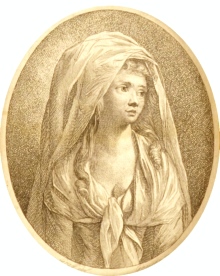
An die Freiheit
Goldne Freiheit, kehre wieder
In mein wundes Herz zurück,
Weck’ mir neue, heit’re Lieder
Und entwölke Geist und Blick.
Komm und trockne meine Thränen
Mit der rosig-zarten Hand,
Stille meines Busens Sehnen,
Löse, was die Liebe band.
Liebe schafft Olympos-Freuden,
Und wer ehrte sie wie ich? –
Tiefer doch sind ihre Leiden,
Und allein sie trafen mich.
Ach! mit Jahren voller Qualen,
Mit des halben Lebens Glück
Mußt’ ich ihre Wonne zahlen,
Flüchtig, wie ein Augenblick.
Ohne Freuden stieg der Morgen
Für mich arme Schwärmerin,
Und der Liebe bleiche Sorgen
Welkten meinen Frühling hin.
Wonne hat sie mir versprochen,
Treue war mein Gegenschwur,
Unsern Bund hat sie gebrochen,
Schmerz und Tränen gab sie nur. –
Nimm für deine Palmenkrone
Was die Liebe mir verspricht,
Hier in dieser Männer-Zone
Grünt für mich die Myrte nicht.
Goldne Freiheit, kehre wieder,
Stimme meiner Harfe Ton;
Jubelt lauter, meine Lieder,
Ihr Umarmen fühl’ ich schon!
Sophie Albrecht
(1757-1840)
Gedicht
An die Freiheit
• fleursdumal.nl magazine
More in: Archive A-B, Archive A-B, CLASSIC POETRY, Galerie Deutschland
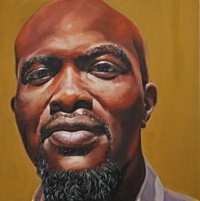
Handen thuis!
Ik las iets…
Moeder wordt op de billen geslagen door jochie van 14.
In de Bisschop Zwijsenstraat, in het bijzijn van haar kinderen,
kon een verse puber zich blijkbaar niet beheersen.
“Ach”, zullen sommigen zeggen, “doe rustig het zijn kwajongens streken”.
Maar kwajongens worden mannen, met diezelfde onbegrip dat dit meer is dan een aanraking.
En als dat onbegrip ook volwassen wordt, dan krijg je een ergere vorm van aanranding.
Want dat is wat dit was, aanranding, geen misplaats puberaal gedrag.
Voor de eerbaarheid van die vrouw was dit een aanslag.
De schaamte dat je in het bijzijn van je kinderen wordt gedegradeerd.
Blijkbaar ben je publiek eigendom dat zelfs door een tienertje mag worden “gehanteerd”.
Tilburg, onze spiegel is hoe wij mensen behandelen.
Vaders, dit is niet de wijsheid die wij op deze wereld moeten achterlaten.
In deze tijd van genderloosheid, zijn sommigen op zoek naar de definitie van man zijn. Maar in ieder geval is het niet dit.
En nu de hamvraag: “Onias, overdrijf je niet?” “Een tik op de billen een aanslag?”
Wel nu mijn wedervraag: Hoe zou jij reageren? Als dit je moeder, dochter, zus, tante, nicht, buurvrouw of collega was?
Want dat was die vrouw en als je dat niet beseft, ligt ergens het probleem ook bij jou.
Was getekend jullie stadsdichter.
Onias Landveld
Stadsdichter Tilburg (2015 – 2017)
Handen thuis! (gedicht)
Portret: Ivo van Leeuwen
• fleursdumal.nl magazine
More in: Archive K-L, Archive K-L, Ivo van Leeuwen, Landveld, Onias, Performing arts
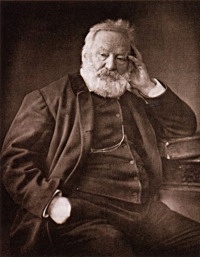
Les fusillés
… Partout la mort. Eh bien, pas une plainte.
Ô blé que le destin fauche avant qu’il soit mûr !
Ô peuple !
On les amène au pied de l’affreux mur.
C’est bien. Ils ont été battus du vent contraire.
L’homme dit au soldat qui l’ajuste : Adieu, frère.
La femme dit : – Mon homme est tué. C’est assez.
Je ne sais s’il eut tort ou raison, mais je sais
Que nous avons traîné le malheur côte à côte ;
Il fut mon compagnon de chaîne ; si l’on m’ôte
Cet homme, je n’ai plus besoin de vivre. Ainsi
Puisqu’il est mort, il faut que je meure. Merci. –
Et dans les carrefours les cadavres s’entassent.
Dans un noir peloton vingt jeunes filles passent ;
Elles chantent ; leur grâce et leur calme innocent
Inquiètent la foule effarée ; un passant
Tremble. – Où donc allez-vous ? dit-il à la plus belle.
Parlez. – Je crois qu’on va nous fusiller, dit-elle.
Un bruit lugubre emplit la caserne Lobau ;
C’est le tonnerre ouvrant et fermant le tombeau.
Là des tas d’hommes sont mitraillés ; nul ne pleure ;
Il semble que leur mort à peine les effleure,
Qu’ils ont hâte de fuir un monde âpre, incomplet,
Triste, et que cette mise en liberté leur plaît.
Nul ne bronche. On adosse à la même muraille
Le petit-fils avec l’aïeul, et l’aïeul raille,
Et l’enfant blond et frais s’écrie en riant : Feu ! […]
Victor Hugo
(1802-1885)
Les fusillés
(Poème)
L’année terrible
• fleursdumal.nl magazine
More in: Archive G-H, Archive G-H, Hugo, Victor, Victor Hugo
Mina Loy (1882 – 1966)—poet, artist, exile, and luminary—was a prominent and admired figure in the art and literary circles of Paris, Florence, and New York in the early years of the twentieth century.
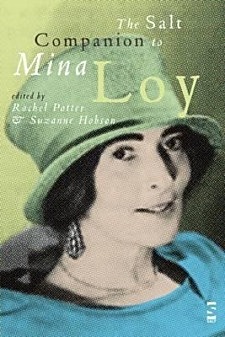 But over time, she gradually receded from public consciousness and her poetry went out of print.
But over time, she gradually receded from public consciousness and her poetry went out of print.
As part of the movement to introduce the work of this cryptic poet to modern audiences, Poetic Salvage: Reading Mina Loy provides new and detailed explications of Loy’s most redolent poems.
This book helps readers gain a better understanding of the body of Loy’s work as a whole by offering compelling close readings that uncover the source materials that inspired Loy’s poetry, including modern artwork, Baedeker travel guides, and even long-forgotten cultural venues.
Helpfully keyed to the contents of Loy’s Lost Lunar Baedeker, edited by Roger Conover, this book is an essential aid for new readers and scholars alike. Mina Loy forged a legacy worthy of serious consideration—through a practice best understood as salvage work, of reclaiming what has been so long obscured.
Poetic Salvage: Reading Mina Loy dives deep to bring hidden treasures to the surface.
Tara Prescott is a lecturer in writing programs at the University of California, Los Angeles.
Poetic Salvage.
Reading Mina Loy
by Tara Prescott
Hardcover
292 pages
Publisher: Bucknell University Press
Language: English
Literature & Fiction
ISBN-10: 1611488125
ISBN-13: 978-1611488128
2016
$76.80
# New books
Poetic Salvage
Reading Mina Loy
Tara Prescott
• fleursdumal.nl magazine
More in: - Book Lovers, - Book Stories, Archive K-L, Archive K-L, Futurism, Loy, Mina

Kijk maar door me heen
Zie maar dat ik echt ben. Dat ik niet schuil
voor antwoorden die altijd ergens vandaan
kunnen komen, midscheeps. Dat ik niet bang
ben om het zwaaigat te verlaten. Omdat ik
weet dat over water vele verhalen de ronde
doen. Over hoe het was toen schepen nog pal
in het midden voeren, er werd gefluisterd
dat er vogels vlogen naar daar waar licht
ontstoken werd met andere vlammen. Kijk
hoe ik hier eigenlijk stilletjes wil huilen, maar
me ferm houd aan de reling en peins over oude
tijden waarin brave mensen oprecht wuifden
naar mannen omdat die kleren van bevrijders
droegen. Zie gewoon maar door me heen.
Bert Bevers
Gedicht: Kijk maar door me heen
Verschenen in Watermerk, Middelburg, 2014
Bert Bevers is a poet and writer who lives and works in Antwerp (Be)
• fleursdumal.nl magazine
More in: Archive A-B, Archive A-B, Bevers, Bert
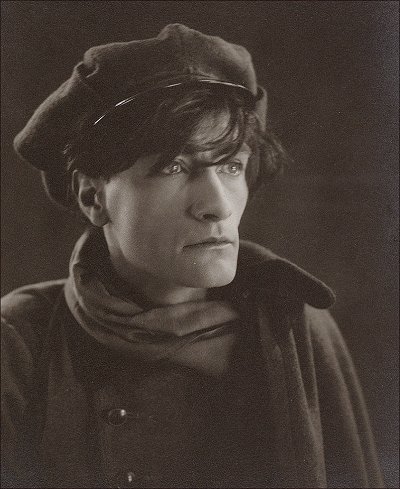
Le Navire mystique
Il se sera perdu le navire archaïque
Aux mers où baigneront mes rêves éperdus ;
Et ses immenses mâts se seront confondus
Dans les brouillards d’un ciel de bible et de cantiques.
Un air jouera, mais non d’antique bucolique,
Mystérieusement parmi les arbres nus ;
Et le navire saint n’aura jamais vendu
La très rare denrée aux pays exotiques.
Il ne sait pas les feux des havres de la terre.
Il ne connaît que Dieu, et sans fin, solitaire
Il sépare les flots glorieux de l’infini.
Le bout de son beaupré plonge dans le mystère.
Aux pointes de ses mâts tremble toutes les nuits
L’argent mystique et pur de l’étoile polaire.
Antonin Artaud
(1896 — 1948)
Le Navire mystique
Poème
• fleursdumal.nl magazine
More in: Antonin Artaud, Archive A-B, Archive A-B, Artaud, Antonin
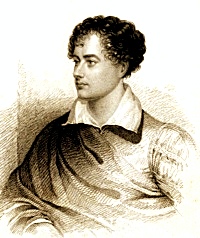
John Keats Poem
Who killed John Keats?
‘I,’ says the Quarterly,
So savage and Tartarly;
”Twas one of my feats.’
Who shot the arrow?
‘The poet-priest Milman
(So ready to kill man),
Or Southey or Barrow.
George Gordon Byron
(1788 – 1824)
John Keats Poem
• fleursdumal.nl magazine
More in: Archive A-B, Archive A-B, Byron, Lord, Keats, John
Jean Cocteau (1889 – 1963) is een kunstenaar die tot de verbeelding spreekt. Hij uitte zich in bijna alle artistieke media: poëzie, literatuur, beeldende kunst, vormgeving, theater en zijn favoriete medium: film.
 Meer nog dan om zijn werk was Cocteau bekend om zijn opmerkelijke leven. Hij omgaf zich met beroemdheden als Sergei Diaghilev, Edith Piaf, Pablo Picasso en Coco Chanel, en raakte geregeld in opspraak vanwege zijn homoseksualiteit en drugsgebruik.
Meer nog dan om zijn werk was Cocteau bekend om zijn opmerkelijke leven. Hij omgaf zich met beroemdheden als Sergei Diaghilev, Edith Piaf, Pablo Picasso en Coco Chanel, en raakte geregeld in opspraak vanwege zijn homoseksualiteit en drugsgebruik.
Het oeuvre van Cocteau was een voorbode van de multidisciplinaire praktijken van ontwerpers en kunstenaars van nu. Jean Cocteau | Metamorphosis werpt licht op zijn voortdurende zelftransformatie en zijn zoektocht naar een eigen identiteit. In de hedendaagse maatschappij, waarin het emancipatiedebat weer hoogtij viert en waarin de persoonlijke beeld-en identiteitsvorming in hoge mate beïnvloedbaar is, zijn Cocteau’s leven en werk opnieuw actueel.
Zoals jonge mensen zich tegenwoordig digitaal een identiteit aanmeten, had Cocteau de gave om zichzelf via diverse media steeds met andere ogen te bezien en te laten zien. Jean Cocteau | Metamorphosis toont veel van die gezichten, in woord en in beeld.
Jean Cocteau
Metamorphosis
door Ioannis Kontaxopoulos
november 2018
ISBN 978-94-6208-470-4
design: Berry van Gerwen
Nederlands, Frans
paperback
17 x 24 cm
320 pag.
geillustreerd (150 kleur)
in samenwerking met: Design Museum den Bosch
NAi Boekverkopers / Booksellers
€ 34,95
De tentoonstelling over Jean Cocteau in het Design Museum Den Bosch, loopt nog tot en met 10 maart 2019.
# New books
Jean Cocteau
Metamorphosis
• fleursdumal.nl magazine
More in: - Book News, - Bookstores, Archive C-D, Archive C-D, Art & Literature News, DANCE & PERFORMANCE, Design, Exhibition Archive, FDM Art Gallery, Jean Cocteau, LGBT+ (lhbt+), Maison de la Poésie, Museum of Literary Treasures, SURREALISM, Surrealism, Surrealisme, THEATRE
This book provides a fresh assessment of the works of poet and painter Mina Loy (1882 – 1966).
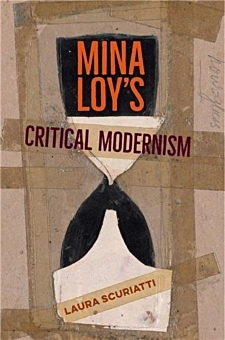 Laura Scuriatti shows how Loy’s “eccentric” writing and art celebrate ideas and aesthetics central to the modernist movement while simultaneously critiquing them, resulting in a continually self-reflexive and detached stance that Scuriatti terms “critical modernism.”
Laura Scuriatti shows how Loy’s “eccentric” writing and art celebrate ideas and aesthetics central to the modernist movement while simultaneously critiquing them, resulting in a continually self-reflexive and detached stance that Scuriatti terms “critical modernism.”
Drawing on neglected archival material, Scuriatti illuminates the often-overlooked influence of Loy’s time spent amid Italian avant-garde culture. In particular, she considers Loy’s assessment of the nature of genius and sexual identity as defined by philosopher Otto Weininger and in Lacerba, a magazine founded by Futurist leader Giovanni Papini. She also investigates Loy’s reflections on the artistic masterpiece in relation to the world of commodities; explores the dialogic nature of the self in Loy’s autobiographical projects; and shows how Loy used her “eccentric” stance as a political position, especially in her later career in the United States.
Offering new insights into Loy’s feminism and tracing the writer’s lifelong exploration of themes such as authorship, art, identity, genius, and cosmopolitanism, this volume prompts readers to rethink the place, value, and function of key modernist concepts through the critical spaces created by Loy’s texts.
Laura Scuriatti, professor of English and comparative literature at Bard College Berlin, is coeditor of The Exhibit in the Text: Museological Practices of Literature.
Mina Loy’s Critical Modernism
Laura Scuriatti
Hardcover
320 pages
Literature – European
ISBN 13: 9780813056302
$85.00
Available for pre-order.
This book will be available in July 2019
(Pub Date: 5/7/2019)
# New books
Mina Loy
Critical Modernism
• fleursdumal.nl magazine
More in: - Book News, - Bookstores, Archive K-L, Archive K-L, Archive S-T, Art & Literature News, Futurism, Loy, Mina
Het nagelaten werk van Franz Kafka is dankzij zijn vriend Max Brod bewaard gebleven, maar na het overlijden van Brod in 1968 begint een hevige en absurde strijd om het eigendomsrecht.
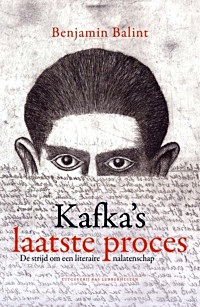 De originele, handgeschreven versies van meesterwerken als Het proces en De gedaanteverwisseling komen achtereenvolgens in handen van Brods secretaresse Esther Hoffe en haar dochter Eva.
De originele, handgeschreven versies van meesterwerken als Het proces en De gedaanteverwisseling komen achtereenvolgens in handen van Brods secretaresse Esther Hoffe en haar dochter Eva.
Er ontvouwt zich echter een juridisch getouwtrek als zowel Israël als Duitsland het werk claimen.
Duitsland, waar drie zussen van Kafka stierven tijdens de Tweede Wereldoorlog, wil de schrijver recht doen, en Israël meent rechten te hebben als Joodse staat en Kafka’s gedroomde land.
Kafka’s laatste proces leest als een waargebeurde thriller, maar maakt pijnlijk duidelijk hoe de Joodse schrijver Franz Kafka inzet wordt van zionistische claims. In de verbeten strijd die de twee landen uitvechten, lijken ze vooral de geschiedenis te willen herschrijven.
Benjamin Balint woont in Jeruzalem, waar hij verbonden is aan het Van Leer Institute. Hij schrijft o.a. voor Haaretz en de Wall Street Journal. Over de Joods-Amerikaanse schrijvers die publiceerden in het tijdschrift Commentary, schreef hij Running Commentary (2010).
Benjamin Balint (Auteur)
Kafka’s laatste proces.
De strijd om een literaire nalatenschap
Vertaling Frank Lekens
Oorspronkelijke titel:
Kafka’s Last Trial.
The Case of a Literary Legacy
Omslagtekening Jirí Slíva
Omslag Bart van den Tooren
Uitg. Bas Lubberhuizen
304 pagina’s
15 x 23 cm
Geïllustreerde paperback
ISBN 9789059375284
Verschenen: januari 2019
€ 24,99
# New books
Benjamin Balint
Kafka’s Last Trial.
The Case of a Literary Legacy
• fleursdumal.nl magazine
More in: - Book News, - Bookstores, Archive A-B, Archive K-L, Archive K-L, Art & Literature News, Franz Kafka, Kafka, Franz, Kafka, Franz
Songs can be incredibly prophetic, like subconscious warnings or messages to myself, but I often don’t know what I’m trying to say till years later.
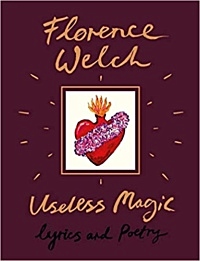 Or a prediction comes true and I couldn’t do anything to stop it, so it seems like a kind of useless magic.
Or a prediction comes true and I couldn’t do anything to stop it, so it seems like a kind of useless magic.
The first book from songwriter and Florence + the Machine frontwoman Florence Welch, Useless Magic brings together 288 pages of lyrics, never-before-seen poetry and sketches.
Taken from Welch’s own scrapbook-style journals, the book offers an extraordinary chance to see inside the creative alchemy behind some of Florence + The Machine’s chart-topping anthems.
It also offers unique personal insights into Welch’s own life from her experiences of suffering with an eating disorder to her thoughts on love and what it means to live your life in the glare of the spotlight. .
Useless Magic:
Lyrics and Poetry
by Florence Welch
Publisher Penguin Books Ltd
Imprint Fig Tree
London, 5 July 2018
Number of pages: 288
Language English
ISBN-10: 0241347939
ISBN-13: 978-0241347935
€ 28,95
# New books
Florence Welch
Lyrics and Poetry
• fleursdumal.nl magazine
More in: - Book News, - Bookstores, Archive W-X, Archive W-X, Art & Literature News, Florence Welch
Willem Wilmink (1936-2003) is een van de meest geliefde dichters van Nederland.
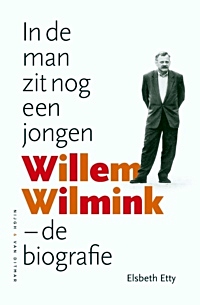 Zijn eenvoudige maar treffende gedichten en liedjes, veelal geschreven voor legendarische tv-programma’s als De Stratemakeropzeeshow, J.J. de Bom en De film van Ome Willem, spreken iedereen aan. ‘De oude school’, ‘Deze vuist op deze vuist’ en ‘Ben Ali Libi’ behoren tot de canon van de Nederlandse literatuur. Hetzelfde geldt voor Wilminks hertalingen van Middeleeuwse klassiekers. Hij was een groot kenner van poëzie uit alle tijdvakken en in al haar verschijningsvormen.
Zijn eenvoudige maar treffende gedichten en liedjes, veelal geschreven voor legendarische tv-programma’s als De Stratemakeropzeeshow, J.J. de Bom en De film van Ome Willem, spreken iedereen aan. ‘De oude school’, ‘Deze vuist op deze vuist’ en ‘Ben Ali Libi’ behoren tot de canon van de Nederlandse literatuur. Hetzelfde geldt voor Wilminks hertalingen van Middeleeuwse klassiekers. Hij was een groot kenner van poëzie uit alle tijdvakken en in al haar verschijningsvormen.
Zijn werk is doortrokken van heimwee naar een veilige kinderwereld die nooit heeft bestaan. Naar eigen zeggen is Wilmink altijd elf jaar gebleven, wat aanvankelijk zijn loopbaan en privéleven ernstig frustreerde, maar tegelijkertijd zijn poëtische kapitaal bleek. Met humor en zelfspot maakte hij zijn lange tijd door miskenning en afwijzing getekende leven leefbaar.
Voor In de man zit nog een jongen sprak neerlandicus en journalist Elsbeth Etty met tientallen tijdgenoten en intimi van Wilmink. Het resultaat is een intiem en niets verhullend portret.
Elsbeth Etty (1951) is literair criticus, columnist en voormalig bijzonder hoogleraar literaire kritiek. Ze publiceerde o.a. verschillende essay- en columnbundels. Voor Liefde is heel het leven niet, haar biografie van Henriette Roland Holst, werd ze genomineerd voor de AKO Literatuurprijs en bekroond met de Gouden Uil en de Busken Huetprijs.
In de man zit nog een jongen
Willem Wilmink – De biografie
Auteur: Elsbeth Etty
Uitgeverij: Nijgh & van Ditmar
NUR: 321
Taal Nederlands
Bladzijden 552 pp.
Bindwijze Hardcover
ISBN: 9789038806112
Publicatiedatum: 22-01-2019
Prijs: € 34,99
# New books
Willem Wilmink – De biografie
Auteur: Elsbeth Etty
• fleursdumal.nl magazine
More in: #Biography Archives, - Book News, - Book Stories, - Bookstores, Archive E-F, Archive W-X, Archive W-X, Art & Literature News, Willem Wilmink
Thank you for reading Fleurs du Mal - magazine for art & literature